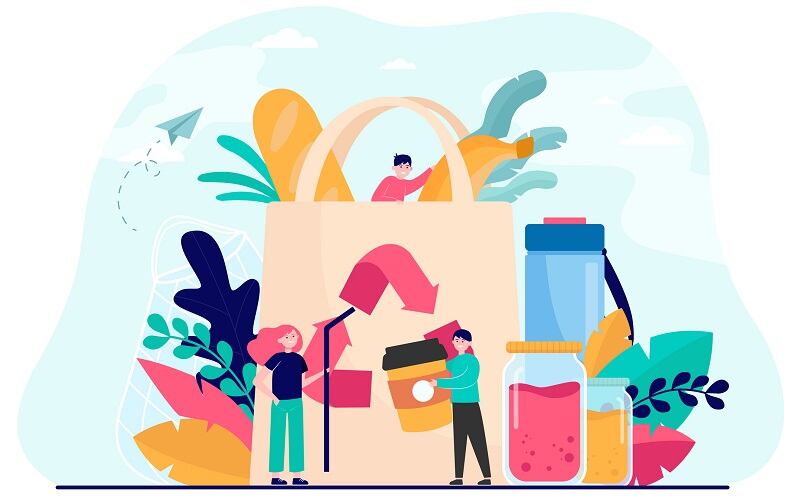Launched in 2017, the Zero Hunger | Zero Waste plan is Kroger's multi-pronged approach to creating a more sustainable business and food and beverage supply chain, which focuses on people, the planet, and systems. The program aims to provide affordable and nutritious foods to its consumers and communities while reducing the energy used and food waste produced at Kroger stores.
Kroger set a goal to achieve a 30% cumulative reduction in GHG emissions from its baseline of total Scope 1 and 2 emissions and achieved a 15.2% reduction from a 2017 baseline or what is equivalent to 4,894,705 metric tons of CO2 emissions.
The grocer achieved these reductions in part by placing glass doors on open refrigerated cases, replacing aging refrigeration units, and installing energy management systems that identify consumption hotspots and energy-reduction opportunities. Kroger has also shifted to hybrid electric/diesel trailers for all its trailers for Ralphs and Food4Less stores in California.
"The progress made over the last year is a true testament to the commitment of every last associate from the frontline to our merchandising, operations, supply chain teams and beyond, who are advancing our vision to create healthy communities free from hunger and waste. We celebrate another year of progress and our associates who make it possible,” said Keith Dailey, Kroger's group VP of corporate affairs and chief sustainability officer, in a press release.
Tackling food waste, joining the upcycled-food movement
Kroger set a goal to achieve 95% waste diversion for its stores and reduce total waste generated in its supermarkets by 50% cumulative from its 2017 baseline by 2025. In 2022, Kroger was able to reduce its food waste by 26.2%, equivalent to 245,289 tons, while achieving 45.9% waste diversion, the report stated.
In 2022, 92% of Kroger stores were a part of food recycling programs, with a goal of 95% of them supporting similar programs by 2025. Kroger also uses a combination of animal feed, composting, and anaerobic digestion to reduce food waste.
Reducing food waste is also influencing how Kroger is approaching its private label brands, Our Brands and Simple Truth, which are seeing increased demand from consumers looking for better-for-you and better-for-the environment products.
Kroger launched six Upcycled Certified Simple Truth products, including chocolate chip cookies and brownie mixes, and sales of Our Brands plant-based items increased more than 7% in 2022 compared to the previous year, the report stated. The company also sourced 20.4m pounds of Fair-Trade Certified ingredients for its Our Brand, which represents a 20.8 increase year-over-year, led by transitioning its Private Selection coffee to Fair-Trade Certified.
In the seafood department, Kroger is closing in on its goal of having 100% of its seafood sourced from sustainable sources, achieving 99% in 2022. Similarly, the company has 98.1% of its shelf-stable tuna coming from sources that participate in the International Seafood Sustainability Foundation.


